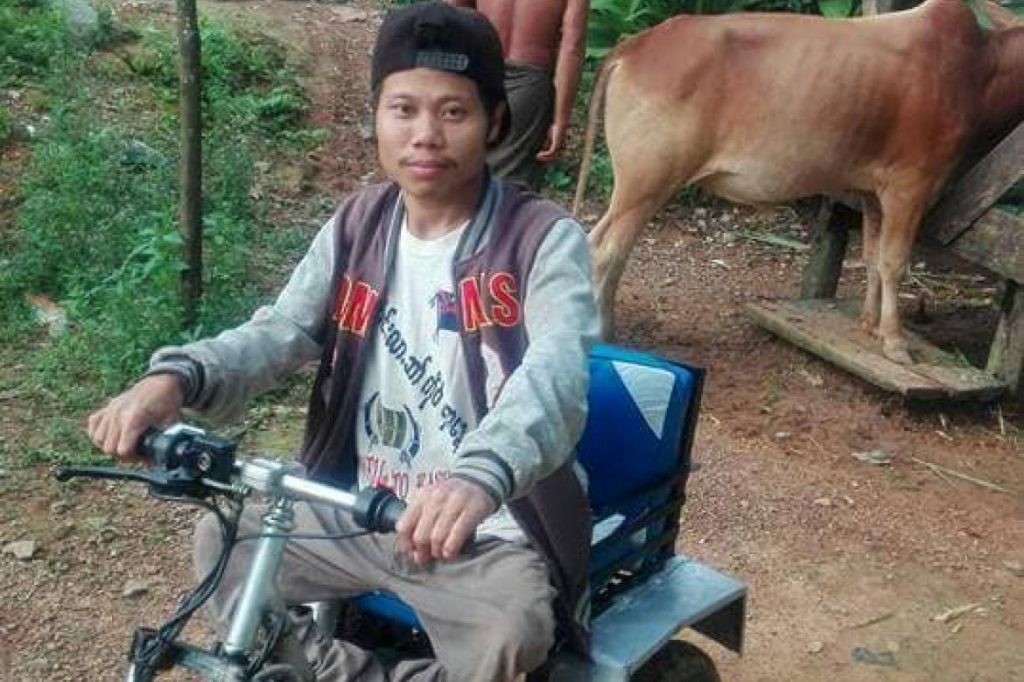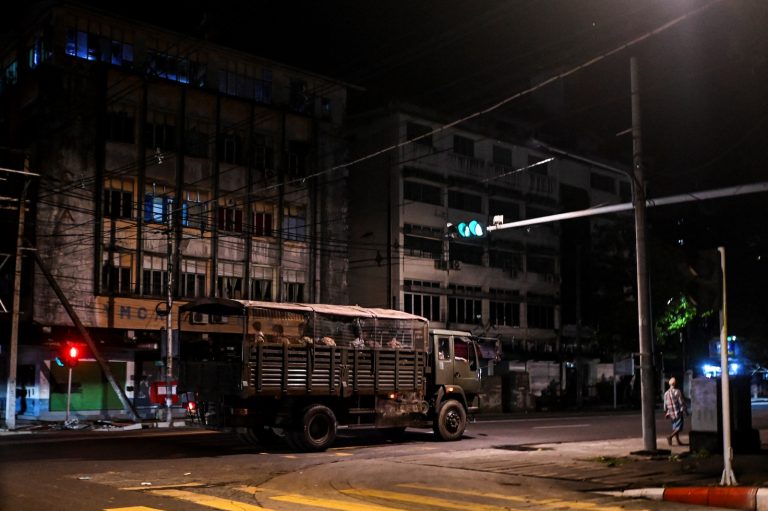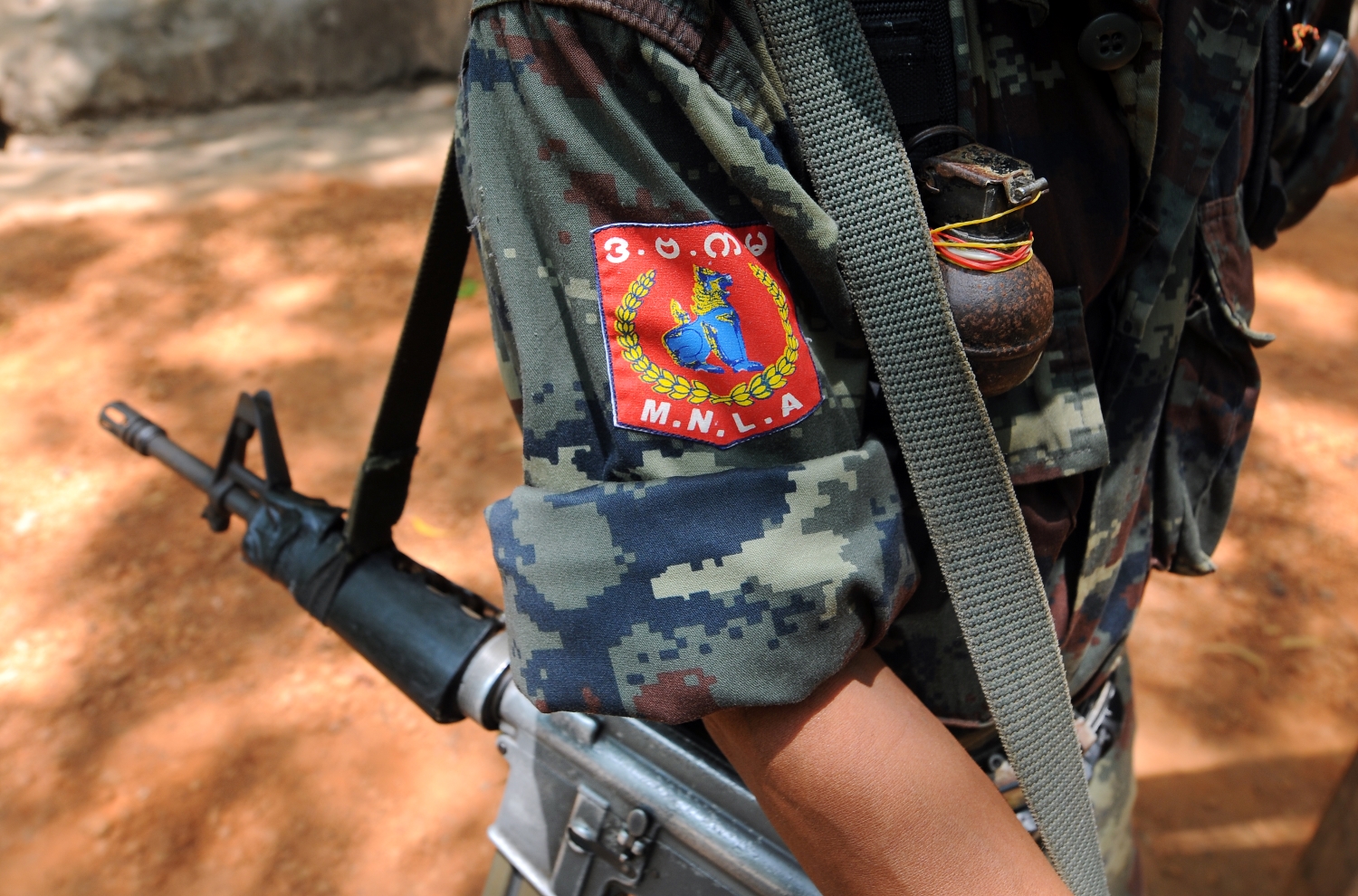By SU MYAT MON | FRONTIER
Frontier’s recent story of an inspirational young man providing medical care in his Mon State village has received a happy ending thanks to a generous Yangon donor.
Ko Kan Htoo Aung, 31, was born without the ability to use his legs but for nearly a decade he has been providing treatment to the residents of Upper Kanni village in Kyaikto Township. Part of his work is to provide malaria treatment under a project run by healthcare NGO, Population Services International.
As Frontier reported in the article “Nothing is impossible”, Kan Htoo Aung runs a clinic in his house and also conducts home visits. But arranging transport for the home visits can be difficult, as it requires someone from the community to carry him out of his house on their back, prop him on a motorbike and drive him to the patient’s house.
Kan Htoo Aung told Frontier at the time that a self-powered wheelchair that eliminated the need to rely on others for transport “would be great”, but he couldn’t afford it for the time being.
Support more independent journalism like this. Sign up to be a Frontier member.
Enter the donor, who agreed to buy and transport a battery-powered, tricycle-style wheelchair produced in Yangon, at a cost of around US$600. The donor has requested to remain anonymous.
Before Kan Htoo Aung received his new wheels on August 4, he said he was so excited that he couldn’t sleep.
He hasn’t been disappointed, telling Frontier recently that he has been constantly on the move ever since.
“I was so happy to be able to go wherever I want,” he said. “I would like to say thanks to [the donor] for providing me with this wheelchair and to PSI for telling Frontier about me.”
The only challenge is topping up the battery. Because Upper Kanni has no electricity, Kan Htoo Aung has to drive to another village about 1.6 kilometres away (1 mile) to recharge.
A full recharge takes around six hours and enables Kan Htoo Aung to cover more than 50km (almost 35 miles). No longer having to rely on others for transport means he can see more patients; when Frontier spoke to him, he had already visited three neighbouring villages without assistance.
Kan Htoo Aung said the wheelchair took some getting used to but by the third day he was proficient. “On the day I received it, I even drove straight into a palata shop when I went to get something to eat. But there was no serious damage,” he said with a laugh.







